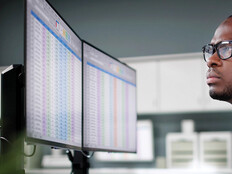mHealth Offers New Ways to Manage Diabetes
According to the Centers for Disease Control, 29.1 million people — more than 9 percent of the population — are living with diabetes.
Providing effective care to people living with diabetes is putting a huge strain on health systems, but mobile health technologies are proving effective in managing diabetes for patients and streamlining care for physicians.
Short-Term Diabetes Care Gets a Boost From mHealth
A new study published in the medical journal PLOS ONE finds that, on average, interventions facilitated through wireless technologies such as smartphones and tablets “improve glycemic control compared to standard care or other non-mHealth approaches,” at least in the short-term.
The report took a look at several other studies aimed at determining the effectiveness of apps and wearables in managing diabetes care. In these studies, apps and messages encouraged patients to monitor and report their blood glucose levels daily, as well as reinforced healthier lifestyles and even delivered information on medication adjustment.
“The ubiquitous nature of mobile phones coupled with their constantly evolving processing and connectivity power create opportunities for new and innovative approaches to support blood glucose and diet monitoring, measurement of daily physical activity, education, and other activities that can facilitate diabetes self-management and enhance patient-provider communication,” the report notes.
The study isn’t quite definitive, however, with the report noting that further studies are necessary in order to gauge exactly how the more frequent contact between diabetes patients and providers through mHealth tech impacts patient behavior. It also suggests these further studies should focus on exploring the use of diabetes mobile apps that are publicly available through the Apple and Google Play stores to see how strategies such as gamification, decision aids and social media can play a role in upping self-monitoring and healthier lifestyles.
Fitbit Makes Diabetes Management Automatic
Several mHealth technologies are already on the market.
In December, wearables maker Fitbit teamed up with Ireland-based medical device company Medtronic in order to develop a mobile app that looks to eliminate the middle man in monitoring the impact of exercise on glucose levels, Healthcare Informatics reports. For patients living with Type 2 diabetes, the app collects data from Medtronic’s iPro2 myLog continuous glucose monitors and combines it with Fitbit’s activity tracker to determine how exercise impacts a patient’s glucose levels, eliminating the need to physically enter activity data.
Furthermore, the technology also allows the patient to share their glucose information with their healthcare provider.
"We believe monitoring glucose is a critical element in the management of diabetes and therefore, glucose should be included among other vital signs," Laura Stoltenberg, vice president and general manager of non-intensive diabetes therapies at Medtronic, said in a statement. "By creating a connection between physical activity and glucose levels, our iPro2 myLog mobile app solution provides new tools and insights, so that physicians can optimize therapy and patients can better understand how to manage their diabetes."









